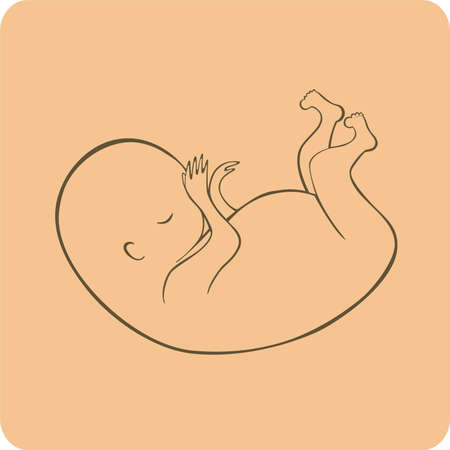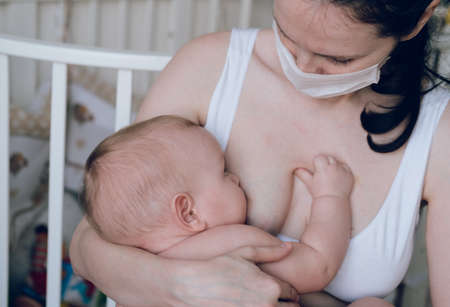Understanding Newborn Sleep Cycles
For many parents across the UK, understanding how newborns sleep is both a challenge and a source of reassurance. The science behind infant sleep cycles reveals that British babies, like others worldwide, have distinct sleep patterns during their first months of life. During this period, newborns experience two primary stages of sleep: active (REM) and quiet (non-REM). Unlike adults, who complete a full sleep cycle in about 90 minutes, newborns cycle through these stages much more quickly, typically every 50-60 minutes.
Key Features of Newborn Sleep
| Sleep Stage | Description |
|---|---|
| Active Sleep (REM) | Babies may twitch, smile, or make sounds; brain activity is high. |
| Quiet Sleep (Non-REM) | Baby lies still with deep, regular breathing; body repairs and grows. |
Typical Sleep Patterns in the First Months
Newborns in the UK usually sleep between 14 to 17 hours over a 24-hour period, but not all at once. Their sleep is often spread out in short bursts—lasting from 2 to 4 hours—both day and night. This is completely normal and rooted in their biological need for frequent feeding and comfort. Understanding these patterns helps parents set realistic expectations and create safer, more restful environments for their little ones.
2. The Science Behind Infant Sleep
Understanding the science behind newborn sleep is crucial for parents in the UK who want to create a safe and nurturing environment for their babies. Newborn sleep cycles are influenced by a combination of biology, neuroscience, genetics, and early development. Unlike adults, infants have shorter and more frequent sleep cycles, which means they wake often during the night. This pattern is not only normal but also necessary for their growth and brain development.
The Role of Genetics and Brain Development
Genetics play a significant role in determining your baby’s natural sleep patterns. Some infants may naturally be lighter or heavier sleepers, and this can be inherited from their parents. The developing brain is especially active during REM (rapid eye movement) sleep, which is when most of an infant’s dreaming—and crucial neural connections—occur. This stage supports memory formation and emotional regulation.
Growth Spurts and Sleep Changes
Newborns experience several growth spurts in their first months, and these periods can temporarily disrupt established sleep patterns. During growth spurts, babies may wake more frequently due to increased hunger or discomfort as their bodies rapidly develop.
Key Factors Influencing Newborn Sleep
| Factor | Impact on Sleep |
|---|---|
| Genetics | Determines baseline sleep needs and sensitivity to disturbances. |
| Brain Development | Shapes sleep architecture; REM sleep is vital for learning. |
| Growth Spurts | Can cause more frequent waking and feeding at night. |
| Environment | Noise, light, and temperature affect sleep quality and safety. |
By appreciating the scientific factors that influence newborn sleep cycles, UK parents can better understand their child’s unique needs. Recognising that frequent waking is part of healthy development can help set realistic expectations and reduce anxiety around infant sleep patterns.

3. Cultural Considerations in the UK
Understanding newborn sleep in the UK involves appreciating local cultural practices and attitudes. British families often have their own traditions around infant sleep, influenced by both modern guidance and longstanding beliefs.
Common UK Practices
In the UK, many parents prefer placing their babies in a separate cot or Moses basket in the same room for at least the first six months, as recommended by the NHS. This approach aims to combine parental closeness with safety. Night feeds and nappy changes are typically managed quietly to avoid overstimulation and help settle babies back to sleep.
British Attitudes Towards Co-Sleeping
Co-sleeping—where parents share a bed with their baby—is a topic of much discussion in British parenting circles. While some families find it helps with bonding and breastfeeding, there is widespread awareness of associated risks, especially regarding sudden infant death syndrome (SIDS). Most UK health professionals advise caution and recommend safe alternatives.
Safe Sleep Recommendations (NHS)
| Recommendation | Description |
|---|---|
| Baby sleeps on their back | This position reduces SIDS risk and is strongly advised by the NHS. |
| Use a firm, flat mattress | Avoid soft surfaces or loose bedding to prevent suffocation hazards. |
| Keep babys sleep space smoke-free | No smoking near your baby or where they sleep. |
| Room-sharing, not bed-sharing | Place baby’s cot in your bedroom for at least 6 months. |
| Avoid overheating | Keep rooms between 16–20°C; don’t overdress your baby. |
NHS Guidance for Parents
The NHS offers comprehensive advice tailored for UK families. Their primary message is to prioritise safe sleep environments: always put your baby on their back, use appropriate bedding, and ensure the sleep area is free from pillows, toys, or heavy blankets. The NHS also provides resources for diverse family structures, including single parents and those from multicultural backgrounds, ensuring every child’s safety is considered within the context of British society.
4. Establishing a Safe Sleep Environment
Creating a safe sleeping environment for your newborn is crucial and directly impacts their sleep quality, as well as reducing the risk of Sudden Infant Death Syndrome (SIDS). In the UK, The Lullaby Trust provides clear, evidence-based guidelines that every parent should follow. Here are practical steps to ensure your baby’s sleep space meets current UK safety standards:
Key Recommendations from The Lullaby Trust
| Recommendation | Details |
|---|---|
| Back to Sleep | Always place your baby on their back for every sleep, both day and night. |
| Clear Cot Space | Keep the cot clear of pillows, toys, loose bedding, and bumpers to prevent suffocation risks. |
| Firm Mattress | Use a firm, flat, waterproof mattress that fits snugly in the cot with no gaps. |
| Room-Sharing | Your baby should sleep in the same room as you for at least the first six months, but not in the same bed. |
The Ideal Room Temperature
The ideal room temperature for a newborn is between 16°C and 20°C. Overheating can increase the risk of SIDS. Use a room thermometer to monitor temperatures and dress your baby in light sleep clothing appropriate for the season. Avoid thick duvets or heavy blankets.
Room-Sharing: Best Practices
- Place your babys cot or Moses basket next to your bed within arms reach.
- Avoid co-sleeping on sofas or armchairs, as these are particularly dangerous environments for infants.
- If breastfeeding at night, always return your baby to their own separate sleeping space once feeding is complete.
Checklist for a Safe Sleep Space
- Cot or Moses basket with a firm, flat mattress
- No loose bedding, pillows, or soft toys
- Room temperature between 16°C–20°C
- No smoking in the house or near the baby
By following these guidelines and regularly reviewing The Lullaby Trust’s advice, parents in the UK can create a safe sleep environment that supports healthy newborn sleep cycles while minimising risks.
5. Practical Advice to Soothe and Support Baby Sleep
Understanding the science behind your newborn’s sleep is crucial, but putting that knowledge into action is where UK parents truly make a difference. Here are hands-on strategies tailored for British homes to help soothe newborns, manage common sleep disruptions, and encourage consistent bedtime routines.
Soothing Techniques Suited to British Households
Many classic methods work well in the UK context, from gentle rocking in a Moses basket to using white noise or calming lullabies. Creating a peaceful environment—think blackout blinds to block out early summer sunrises or using cellular blankets for safety—can make all the difference. Consistency with these approaches helps your baby feel secure.
Practical Strategies for Common Sleep Disruptions
| Disruption | Strategy |
|---|---|
| Night-time Waking | Keep night feeds low-key: dim lights, soft voices, and minimal stimulation help babies return to sleep more quickly. |
| Day/Night Confusion | Expose your baby to natural daylight during the day and keep evenings calm and dark to reinforce circadian rhythms. |
| Colic or Wind | Try gentle tummy massages or the “cycling legs” motion; winding after each feed can help prevent discomfort. |
Establishing a Consistent Routine
A simple bedtime routine signals it’s time for sleep. In British households, this might include a warm bath with familiar scents like lavender, a quiet cuddle in the nursery, and reading a short story. Sticking to roughly the same times each night helps regulate your baby’s internal clock.
Sample Bedtime Routine for UK Families
| Time | Activity |
|---|---|
| 6:30 pm | Bath time with gentle baby wash |
| 6:45 pm | Cuddle and lullaby (perhaps “Twinkle, Twinkle Little Star”) |
| 7:00 pm | Nappy change and feeding in low light |
| 7:15 pm | Read a short picture book (such as “Guess How Much I Love You”) |
Remember, every baby is different—what works for one family may need tweaking for another. The key is patience, consistency, and responding to your little one’s needs while keeping safe sleep guidance from the NHS at the forefront.
6. When to Seek Help
While it is normal for newborn sleep patterns to be unpredictable, it is important for parents in the UK to recognise when their babys sleep habits may signal a potential issue. Early intervention can help ensure your baby’s health and your peace of mind. Below are key signs that should prompt you to seek advice from health visitors, midwives, or NHS professionals.
Warning Signs to Watch For
| Sign | What It Could Indicate |
|---|---|
| Very little sleep (less than 8 hours in 24) | Possible underlying medical condition or discomfort |
| Difficulty waking for feeds or very lethargic | Potential illness or feeding issue |
| Excessive crying and inability to settle after basic needs are met | Colic, reflux, or another health concern |
| Frequent pauses in breathing while asleep (apnoea) | Requires immediate medical attention |
| Poor weight gain alongside disturbed sleep | Feeding problems or other health concerns |
Who to Contact and When
- Health Visitor: Your first point of contact for general concerns about sleep, behaviour, or feeding. They provide ongoing support through home visits and clinics.
- Midwife: If your baby is under two weeks old, speak with your midwife for any early concerns about sleep patterns, especially if combined with feeding difficulties.
- NHS 111: For urgent but non-life-threatening concerns such as persistent high temperature, unresponsiveness, or severe difficulty breathing during sleep.
The Importance of Trusting Your Instincts
If something doesn’t feel right, trust your parental instincts. You know your baby best. In the UK, there is no need to feel you are ‘bothering’ professionals—your health visitor and NHS services are there to support you at any time.
Helpful Resources
- NHS website: Support and Services for Parents
- NHS 111: Dial 111 for non-emergency advice 24/7
If in doubt, always err on the side of caution. Early assessment and reassurance can make a significant difference for both you and your newborn.


